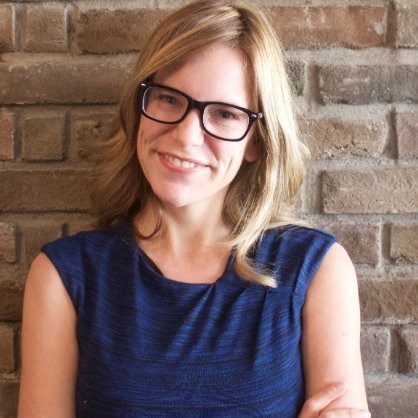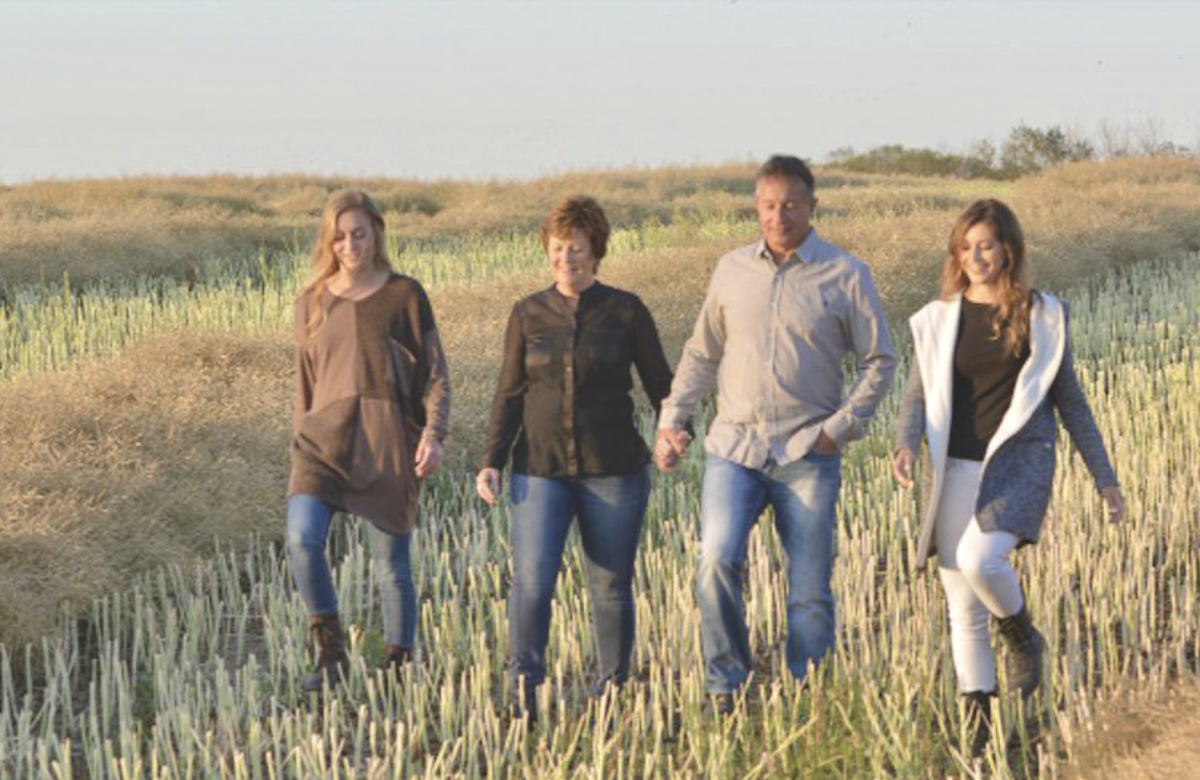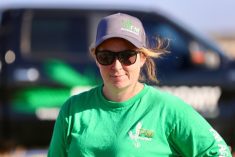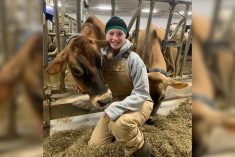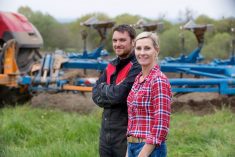“I thought my career was over.”
Alanna Koch reminisces about her decision to quit her job as executive director of the Western Canadian Wheat Growers Association to stay home with her kids full-time in 2000.
“I thought it was the end of the world,” she says.
Read Also
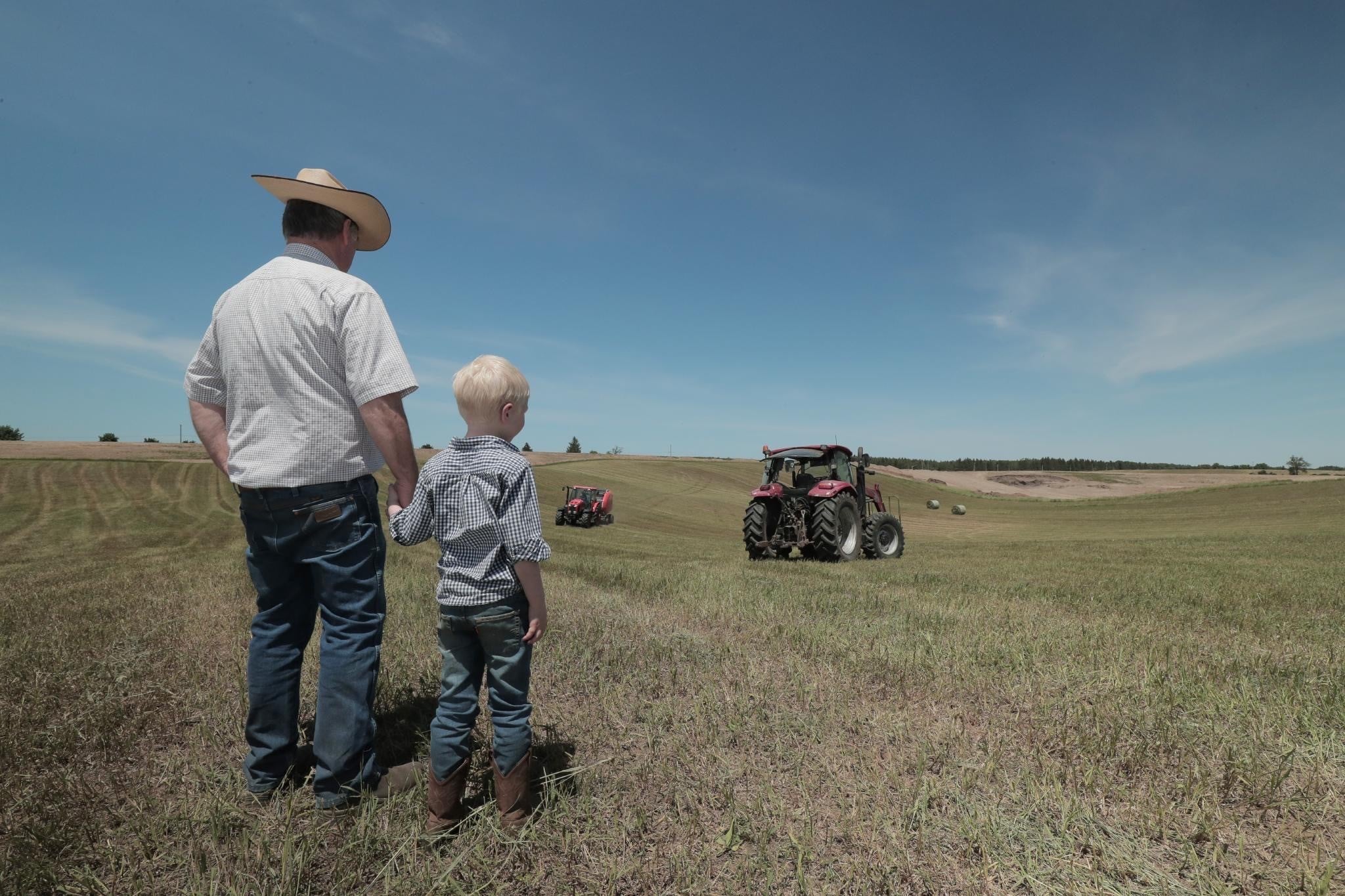
Where convention and innovation meet
How one Ontario farm is integrating technology into their beef operation.
Her role with the association followed years of public service work with the provincial Progressive Conservative government in the 1980s, including a position as chief of staff to Premier Grant Devine.
After her time in government, she and husband Gerry Hertz moved away from urban life in the early 1990s, to Koch’s hometown of Edenwold, Sask. Their plan was to start their own small farm operation and a family. But rural life proved busy for the young family, with both Koch and Hertz working full-time jobs and often travelling for work.
They’d enlisted a nanny to help with child care (there were no daycare options available in Edenwold at the time), but they still felt the arrangement was untenable, Koch says. “It was like we hit the wall. I was spending more time away, spending more money on paying the nanny than I was making.” And so, she and Hertz sat down to have a difficult conversation, one of many throughout the span of their professional and parenting careers.
“I wanted to have kids, but I didn’t think I wanted to be a stay-at-home mom,” Koch says. “It was our decision together, but I really felt forced.”
The experience of transitioning to full-time mom yielded one of the great lessons Koch has learned throughout her multi-decade career: transitions are difficult, especially when unplanned or forced, but they often yield rich periods of growth, fulfillment and valuable learning.
And not long after her decision to step back from the growers association, she discovered something unexpected. “I realized I really, really loved spending more time with my kids.”
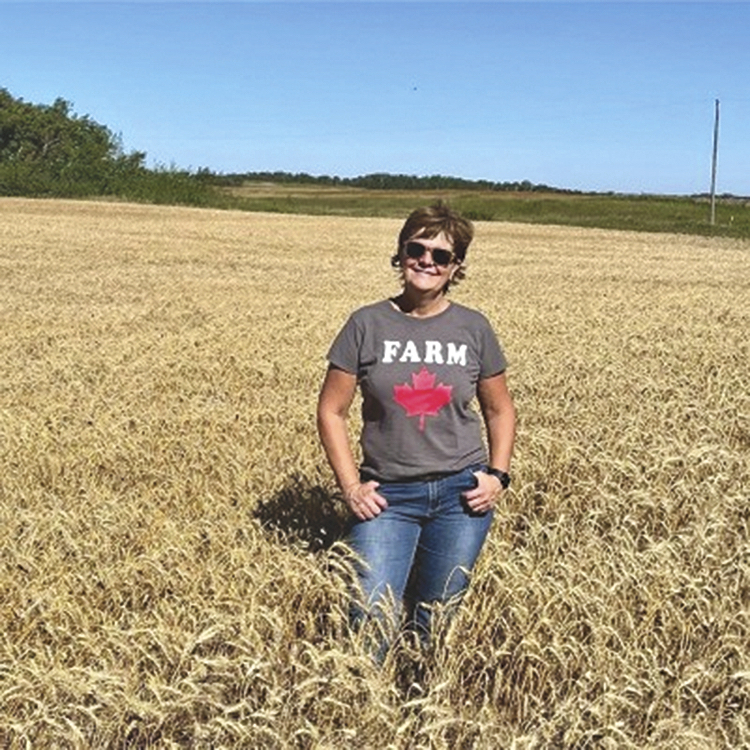
Daughters Shayla and Keisha were born while Koch was working full-time. Her first maternity leave had been six months, the standard at the time, and her second had been only four months due to a job-sharing arrangement. “I hadn’t been home enough to really know what it was like to be home. I don’t think I had allowed myself that time.”
Another valuable lesson she learned was that being the at-home parent didn’t necessarily translate into the death of her career. She kept her foot in the door by taking on contract work and getting involved with local and provincial boards. “I always did a little bit of consulting work,” she says. “It helped with income and I think I was a better mom as a result.”
The next phase
In fact, Koch enjoyed her time at home with the kids so much that when newly elected Saskatchewan Premier Brad Wall called to offer her a job in 2007, she said no.
But Wall drove a hard bargain.
“He said, ‘Listen, you’ve been haranguing me as leader of the opposition about all the things we should be doing in ag, so now you need to come make it happen as deputy minister.’”
Koch’s girls were 13 and 11 at the time, and she knew from her previous stint in the political world the expectations and pressures that come with the job. But she also believed there was tremendous potential for Saskatchewan’s agriculture industry, which could and should be nurtured through government support and policy. So, she and Hertz sat their daughters down at the kitchen table to discuss.
“I said, ‘This is an opportunity that I think I’d really like to take, but it means I’m going to be away a lot.’” It was a difficult conversation, but her family was supportive. Together, they decided Hertz would quit his full-time job to become the primary parent and focus on the farm.
“I don’t think any of us knew really what I was signing up for,” Koch says. “And maybe sometimes that’s okay, because if we knew everything, we would say ‘no’ more often than we should.”
Koch agreed to the position for two years, a commitment she now looks back on as “laughable.” Over the next decade, she served in several roles under the Wall government. She was the first woman to hold the position of deputy minister to the premier and she was one of the longest serving deputy ministers of agriculture in Canadian history.
“I couldn’t help myself,” says Koch, of her longer-than-expected term. “Once I got back in, you’re so passionate about what you’re doing in the moment. I think a lot of people are probably the same.”
This passion compelled her to run for the leadership of the party in 2018, a race in which she was narrowly defeated by current Premier Scott Moe. Although she was sad to lose, she says in the end she realized, again, the experience paved the way for another positive transition.
Transitioning once again
Koch left the political world for good in 2018 and focused on bringing her experience, skills and passion to leadership roles at prominent Canadian agricultural organizations.
She served as chair of both the Global Institute for Food Security and the CN Agricultural Advisory Council, board director for Protein Industries Canada, the Canadian Agriculture Hall of Fame, and many more.
Now, she and Hertz are gearing up for the next big transition, one that is top of mind for almost half of Canadian farmers these days: retirement. And like most of the couple’s life transitions, this one began with thoughtful and sometimes difficult conversations. “You think you want to retire, but then you think ‘it took us so long to build this business,’” she says, referring to their late start building their farm. “It’s almost like we want to quit, but we want to stay in.
“The early part of the conversation is always the toughest, till you get your head and your heart lined up together,” she says. “Then it gets easier. You have to walk in those shoes for a while.”
Over the last couple of years, they have started downsizing the farm, while Koch slowly begins to wrap up some professional roles. And one other detail has made the transition to retirement easier: finally having the time to do things they couldn’t in their previous life, including spending more time with loved ones, like her grandchildren and parents. “That’s not going to be an opportunity that’s there forever.”
The prospect of slowing down has prompted Koch to take stock of a busy career marked by transition and change. While often difficult, she says she is grateful for the experiences and couldn’t have done it any other way.
“I kind of meandered through all these opportunities,” she says. “When I look back, there was maybe a bit of a path and pace to it, but it was definitely just opportunity and people kind of shoving me along the way.”
Advice for life transitions
Alanna Koch may be near the end of her decades-long career, but many of the issues she faced as a working parent are still relevant today. Work-life balance and career transitions remain top issues so Koch offers this advice:
Surround yourself with the right supports
Koch says her professional endeavours simply would not have been possible without the support of her husband, Gerry Hertz, who understood what fulfillment looked like to her.
When Koch and her family decided she would return to politics in 2007, Hertz quit his full-time job and took over child care. “I have an amazing husband,” says Koch. “When I went back to work full-time, he raised the kids. Eighty per cent of it was him, 20 per cent was me. Thank goodness I married well. He’s like super dad.”
Koch is also grateful for employers who helped make career and home life more flexible. When she served as executive director of the Western Canadian Wheat Growers Association in the 1990s, the organization facilitated a job-sharing opportunity for her and another female colleague with children. The flexible arrangement allowed both women to serve as co-executive directors.
“There was no job sharing back then,” Koch says, adding the association always had a lot of female representation on its staff, board and leadership. “That was an unheard-of thing. They were ahead of their time. They were willing to be really creative.”
And Koch says she and Hertz are grateful for supportive family members who helped with child care when the kids were young. “It takes a village,” she says.
Don’t close any doors
When Koch removed herself completely from professional life to stay home full-time with her kids, the move seemed drastic.
So, she figured out creative and flexible ways to keep a foot in the door. She picked up contract work and got involved with local and provincial boards of directors. And while it wasn’t always easy to balance work commitments with child care, she believes it’s critically important for working parents to allow themselves room to stay involved, if that’s what they want.
“I think it’s good for your brain and your mental health, because it’s really difficult to be full-time with kids. Some women are wired that way, and that’s great, but I wasn’t.” She advises working parents to enjoy their time at home and trust their instincts about when it’s time for a transition. “You’ll know when you’re ready to get back into your career full-time.”
And when that time comes, the transition will be easier if you have maintained connections. “Make sure you somehow stay in touch,” she says, noting this is much easier in today’s world of remote work.
Mom-guilt is real. Be kind to yourself
Despite today’s more flexible work arrangements for working parents, Koch believes there are fundamental psychological challenges that come with balancing work and home life.
“It’s still that challenge, that burden, for us as moms, where we’re always feeling like we should be where we’re not. When we’re working, we feel like we should be with our kids, and when we’re with our kids, it’s like ‘I have so much work to do.’”
She has learned that while guilt is real, we can be compassionate with ourselves. “Give yourself some grace and forgive yourself, because you’re always thinking you’re never good enough,” she says.
In her experience, children are more resilient than we give them credit for. “The kids are going to be okay. As long as you love them and you’re there for all the things you can be there for, and you’re present, they’re going to be fine.”
Follow your passions and be present wherever you are
One of the greatest challenges we face today is the constant demands on our attention, making it nearly impossible to just be present. “I tend to overuse the term, but be present when you’re present,” she says. “When I was home, I really did try to not be working, and I tried not to bring work home with me.”
Her daughters, now figuring out their own balancing acts between professional and home life, credit their mom with showing them how to work towards balance with a partner, while also making an impact in respective professional roles. “Gerry and I took turns in our career(s), being home and being away. And I think we’ve built resilient daughters. They’re both super moms.”
Be open to possibilities. Don’t fear change
Koch suggests staying open to new possibilities and opportunities and make decisions based on what’s best for you and your family.
Ask questions like: Is this the right time? Can we handle this as a family? Is this really something I’m passionate about? If this door closes, will it ever open again? “These are the things you think through with your head and heart.”
She says a cornerstone of her relationship with Hertz has been strong communication. “That’s the key to any good relationship and any good decision. And as you talk it through, you work through your emotions.”
The transitions and decisions they faced as a couple weren’t always easy to navigate, but she says they were always positive, even if it took awhile for her to realize. “How did I move through those transitions? Sometimes painfully and not very willingly,” she admits. “But I must say, all of the changes that I’ve made have always been really good, and spending more time with my kids was really good.”

